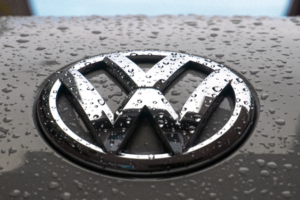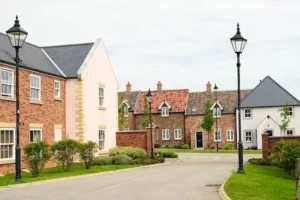Are you looking for ways to reduce your carbon footprint and make your home more eco-friendly?
As climate change continues to be a growing concern, many homeowners in the UK are taking steps to lower their environmental impact. One of the most effective and practical changes you can make is upgrading to an eco-friendly boiler. Not only can this help you reduce greenhouse gas emissions, but it can also lead to significant savings on your energy bills. In this article, we’ll explore how an efficient boiler can contribute to a greener planet and why it’s a smart investment for your home.
1. Why Boiler Efficiency Matters
Did you know that heating accounts for a significant portion of a typical UK household’s energy consumption? Traditional boilers, especially older models, are often inefficient, meaning they waste a lot of energy and produce more carbon emissions. This inefficiency not only drives up your energy bills but also contributes to the overall carbon footprint of your home.
An energy-efficient boiler, on the other hand, is designed to maximise the amount of heat produced from the fuel it consumes. By using less fuel to generate the same amount of heat, these boilers significantly reduce the amount of carbon dioxide released into the atmosphere. Upgrading to a more efficient boiler is one of the most impactful ways to lower your home’s carbon emissions, helping you do your part in the fight against climate change while also enjoying lower energy costs.
2. Understanding Eco-Friendly Boilers
So, what exactly makes a boiler eco-friendly?
“The key lies in its efficiency and technology”, according to Plumbox. “Eco-friendly boilers, particularly those with condensing technology, are designed to be highly efficient. Unlike older, non-condensing models, these boilers capture and reuse heat that would otherwise be lost through the flue. This process not only reduces energy waste but also increases the overall efficiency of the boiler.”
Condensing boilers, which are now standard in the UK, operate at over 90% efficiency, meaning more of the fuel’s energy is converted into heat for your home. This higher efficiency translates to lower carbon emissions and reduced energy consumption. When compared to older, less efficient models, eco-friendly boilers can make a significant difference in your household’s carbon footprint, all while providing reliable heating and hot water.
3. Key Features to Look for in an Eco-Friendly Boiler
When shopping for an eco-friendly boiler, there are several key features you should look for to ensure you’re making the best choice for both your home and the environment.
Efficiency Ratings: Boilers are rated for energy efficiency, with A-rated models being the most efficient. An A-rated boiler will use less fuel to produce the same amount of heat, helping you reduce both your energy bills and your carbon footprint.
Condensing Technology: As mentioned earlier, condensing technology is a must-have for any eco-friendly boiler. By capturing and reusing heat, condensing boilers achieve higher efficiency levels and lower emissions compared to non-condensing models.
Smart Controls: Modern boilers often come equipped with smart thermostats and controls, which allow you to optimise your heating schedule and monitor energy usage. These features can further enhance your boiler’s efficiency by ensuring it only operates when necessary, reducing waste and saving you money.
4. Financial Benefits of Upgrading to an Eco-Friendly Boiler
Investing in an eco-friendly boiler is not just good for the environment; it’s also a smart financial decision. One of the most immediate benefits you’ll notice is the reduction in your energy bills. Because energy-efficient boilers use less fuel to generate the same amount of heat, you’ll find that your heating costs decrease significantly. Over time, these savings can add up, helping to offset the initial cost of the new boiler.
Additionally, there are financial incentives available in the UK to encourage the adoption of more efficient heating systems. Government schemes, such as the Boiler Upgrade Scheme, can help reduce the upfront costs associated with installing an energy-efficient boiler. By taking advantage of these incentives, you can make the transition to a greener heating system even more affordable. Plus, with lower maintenance costs and a longer lifespan, an eco-friendly boiler is a long-term investment that continues to pay off.
5. Choosing the Right Boiler for Your Home
Selecting the right eco-friendly boiler for your home depends on several factors, including the size of your property, your hot water demand, and your existing heating system. For smaller homes or flats, a compact combi boiler might be the best option, as it provides both heating and hot water without the need for a separate storage tank. Larger homes with higher hot water demands might benefit more from a system boiler, which can supply multiple outlets simultaneously.
It’s also important to consider your current heating setup. If you’re replacing an old boiler, sticking with the same type of system can simplify installation and reduce costs. However, if your home’s needs have changed or if you’re looking for better efficiency, upgrading to a different type of boiler might be worthwhile. Consulting with a professional heating engineer can help you assess your needs and choose the most efficient and effective solution for your home.
Ready to make the switch to an eco-friendly boiler?
Upgrading to an eco-friendly boiler is a powerful step towards reducing your carbon footprint and lowering your energy bills. By choosing a high-efficiency model with modern features, you’re not only investing in the future of your home but also contributing to a greener, more sustainable planet.

















